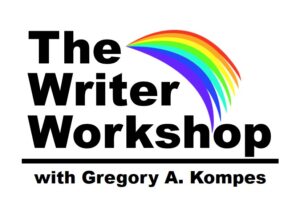The writer’s workshop model remains one of the best ways writers receive feedback. We share our work with a group, and everyone chimes in with ideas and suggestions. Early in our writing careers, we learn about structure and grammar through the workshop. As our writing improves, we begin to learn about character development, plotting, and structures. Sharing a novel through workshop process can often take years. It’s not uncommon for a first novel to take up to a decade to be completed.
Eventually, there’s a joyous moment when we find an agent and they sell our book to a publisher. Signing the contract, receiving an advance, making plans for the future are all exciting things. That’s also the time when we need to learn as much as possible about marketing and self-promotion.
What doesn’t get talked about often is what comes next on the writing front. For the traditionally published, there’s a cycle: A book a year. You have to keep publishing if you want to grow your audience. You have to keep publishing to build your series or your backlist and satisfy your readers. This is how most successful authors create careers. If you go more than a year between books, a lot of the audience building work gets lost because our fickle readers simply move on.
This isn’t only true for the traditionally published. Self-published and indie-published authors need to generate content to their followers, too. Many indie- and self-published authors try to publish books even faster, even embracing rapid release publishing plans which get books to readers weekly, monthly, or quarterly.
The workshop model, where we present a few pages a week to our group, is far too slow to write a draft of a novel and receive feedback and maintain a professional publishing schedule. However, feedback for authors remains essential. After all, others see important issues and problems in our work that we never do.
I asked several of my published writer friends who are building careers how they get feedback for their novels. Here’s what I learned:
1. Agents. If you’re agented, your professional representative will read your work and offer feedback and suggestions. Whether this happens at the first draft stage or later is about your agent/author relationship.
2. Editors. There are lots of different types of editors, from acquisition editors at publishing houses, to freelance editors. Acquisition editors offer excellent feedback, but rarely read first drafts. There are freelance developmental editors who review novels for plot, characters, etc. and will do the work much quicker than a workshop group. There’s an expense for this, of course.
3. Critique Partners. One positive thing that comes out of those years of writer workshop participation is networking. You meet writers whose work you admire and who give you excellent and useful feedback. While the weekly workshop model might be too slow, doing a full manuscript swap or regular chapter swap with a critique partner is among the most popular ways writers get feedback. It’s common to have multiple critique partners to receive feedback from more than one person.
4. Beta Readers. More and more writers are depending on beta readers. They take your whole book, read it, and offer feedback. Sometimes the feedback is based on questions you’ve asked them, and sometimes they simply let you know what’s working and what isn’t. My suggestion: find beta readers of your subgenre instead of writers for this role. You want to know how your readers react. If you have a good mailing list or social media following, it’s easy to find beta readers, just ask your super fans. Most will raise their hands to help you.
BIO: Gregory A. Kompes (MFA, MS Ed) is the founder of TheWriterWorkshop.com and offers weekly writing craft and critique workshops.
Leave a Reply